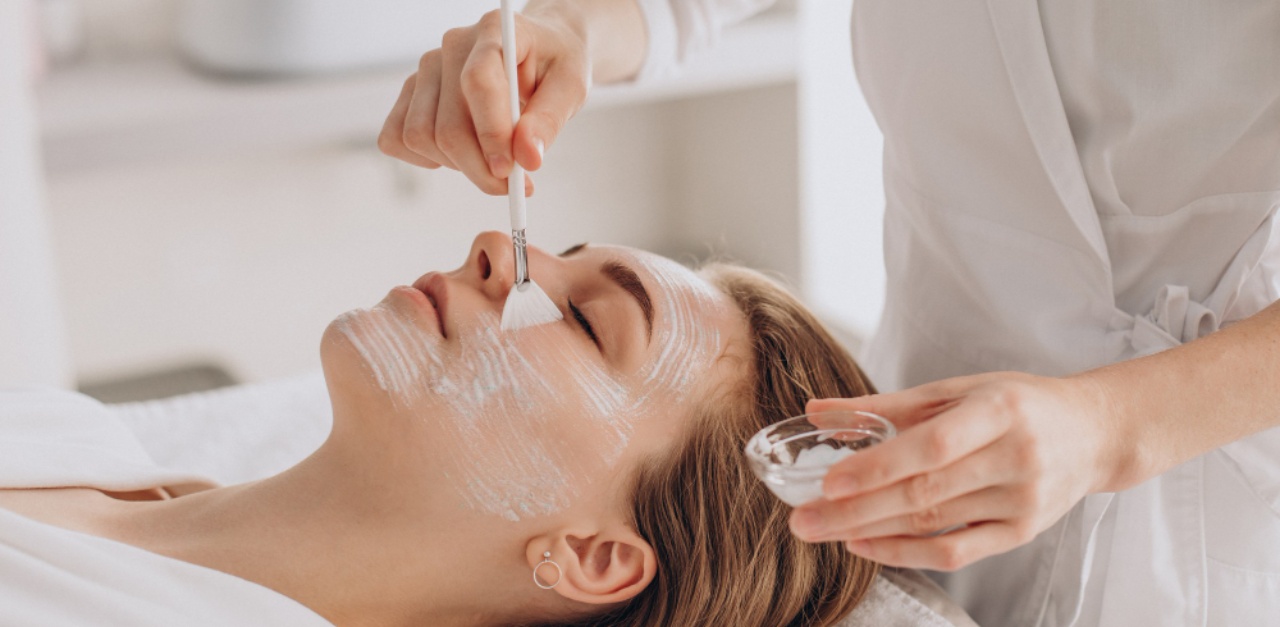Chemical Peels

What is Chemical Peels?
A chemical peel is a procedure during which a special chemical solution is applied to the skin to remove the upper layers. This is done to treat discoloured skin, scars and wrinkles. Depending on the type of condition to be treated, the peeling can be of multiple layers, over multiple sittings, to maximize the benefits. The doctor will decide on the type and extent of the peel that is required. The skin that grows back to replace the skin that has been peeled is smoother and has fewer blemishes. Chemical peels may be done either as a standalone procedure or combined with other cosmetic treatments. A chemical peel is normally done as an outpatient procedure. Before the procedure you’re your skin will be specially cleaned and your eyes and hair protected from contact with the chemical. Pain medicine is rarely required for a chemical peel. However, if there is any irritation that requires treatment, the doctor will prescribe mild medication to ensure your comfort. After a chemical peel, the new skin will be sensitive to sunlight and the doctor will advise you on the precautions you will need to take for a few days to protect your skin.
Endometriosis resection is the term for surgery to remove the unwanted tissue. The surgery, although fairly common, may affect a woman’s ability to get pregnant in the future. The specialists at NMC will first diagnose the extent of the problem and examine treatment options. Patients are briefed on the treatment choices available to them and helped to make a decision that is right for them.
Treating Acne with Chemical Peels
Acne is a common skin condition that occurs when the hair follicles under the skin become clogged and blocked by accumulated oils and dead skin cells. When that happens the oils collect until the time they burst through the skin in the form of pimples. Acne outbreaks are most common on the face but may affect other parts of the body also, such as the back, shoulders and chest. Acne is common after puberty and normally fades away after a few years, but it can occur at any age. Acne can often be controlled by a careful skincare regimen and/or changes in the diet to reduce the production of oils. Oral medications may also help. However, in some cases, if other methods are not as effective as desired, a skin peel may be needed. In this case, the upper layer(s) of skin are peeled off so that the blocked pores that cause the pimples are removed. The new skin that grows back is smoother and clearer without the blocked pores that caused the acne.
Chemical Peels for Acne Scars
While acne may fade away on its own or require treatment to control it, a major problem is that even after the condition is gone, the scars that it has caused remain. These scars may not be serious or cause any pain or health problems, but they can be the cause of some disfigurement, especially if they are on the face. Although not a medical concern, the effect of the scars on a person’s psyche, self confidence and ability to function in society may be out of proportion to any medical issues. Acne scar removal is done to remove, or at least significantly reduce the scarring and restore a person’s confidence in his or her appearance. Exfoliation in the form of topical scrubs may help to reduce the amount of scarring to some extent, but these methods cannot produce the results that chemical peels can.
Chemical peels are a very effective way to treat the scarring problem. In a chemical peel, a peeling agent is applied to the skin. Most peeling agents contain either alpha hydroxy acids (AHAs), such as glycolic acid, or beta hydroxy acids, such as salicylic acid. If a deep peel is required, then stronger chemical components are used. The objective of the peel is to remove the surface layer(s) of the skin where the scarring is visible. The new skin that grows back is smoother and blemish-free to enhance the appearance. The extent of the peeling required and the chemical makeup of the peeling agent to be used will be decided by the doctor after a detailed examination of the skin and if any other medical issues need to be taken into account when formulating the peeling procedure.
Chemical Peels for Skin Whitening
Another condition that is effectively treated by chemical peeling is that of hyperpigmentation, which is when some parts of the skin become darker than other areas. Although this is not a serious medical condition, the effect on a person’s appearance may be significant and lead to social and psychological problems that negatively impact the quality of life. In a few mild cases, the application of topical skin whiteners may reduce the dark patches to some extent, but the most effective way to whiten the skin is by the use of chemical peels. Peels can also be effective in treating melasma, sun-damaged skin, wrinkles and other conditions.
The principle of the procedure is the same as with other skin peels, but when the need is to whiten the skin, the process is changed. Chemical peels for skin whitening use chemical agents that are effective in removing the pigment melanin that makes the skin darker. The type of peel, the strength/concentration of the peeling agent, the duration of the application and the number of sittings will be decided by the doctor after a detailed examination of the skin to identify the exact nature and severity of the darker skin issue.
The treatment is done on an outpatient basis with no need to stay in the hospital for a recovery period. The doctor will advise you on the precaution to be taken after each sitting to minimize any discomfort and protect the new skin.

